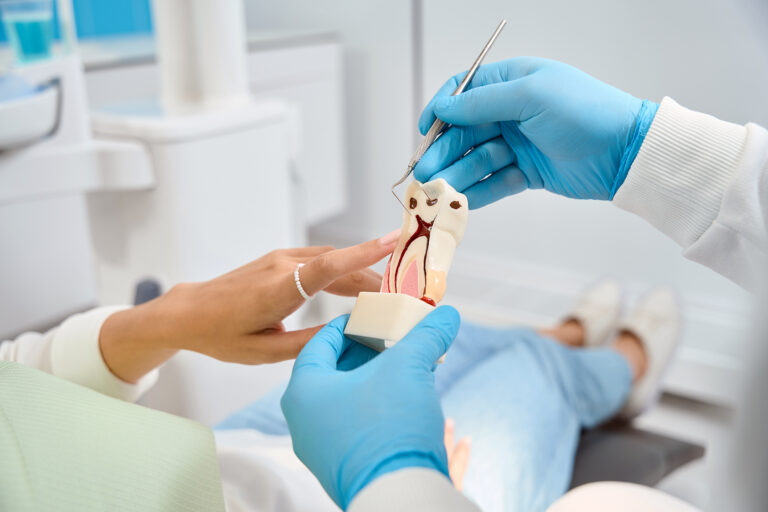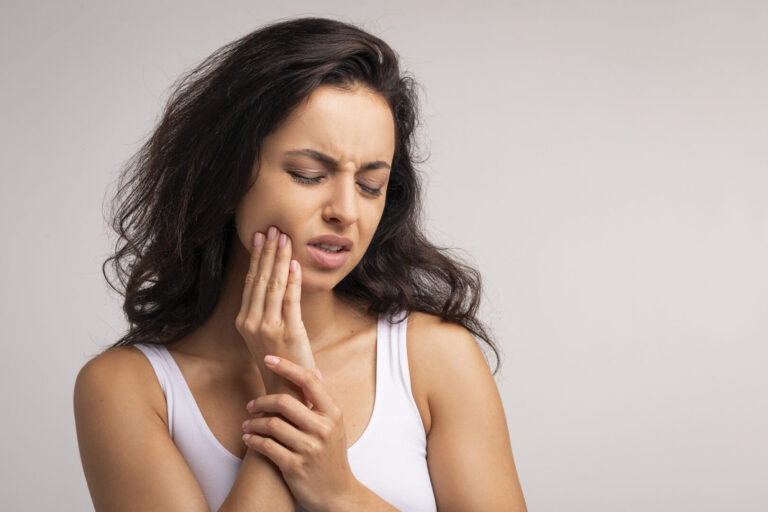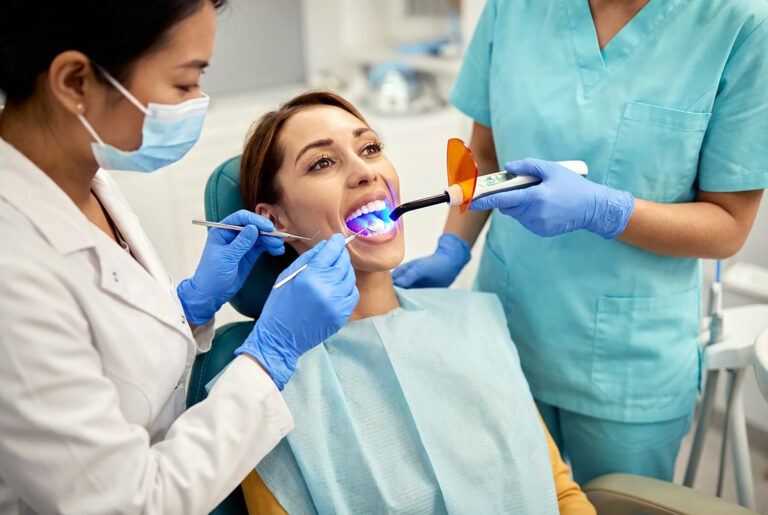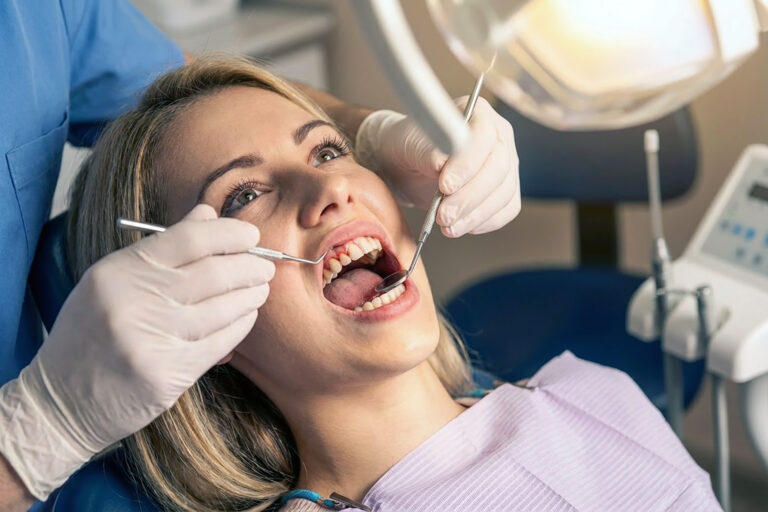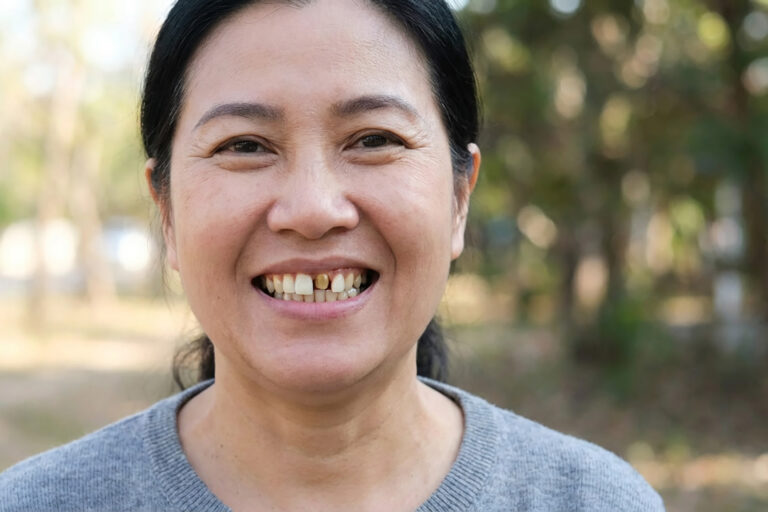What is Teeth Grinding?
Teeth grinding, or bruxism, is the repetitive, involuntary clenching and grinding of the teeth. This condition can happen during sleep or while awake. Unfortunately, sleep bruxism often goes unnoticed until dental problems arise. Awake bruxism frequently occurs during periods of concentration or stress and – for that reason – can also slip by unnoticed.
The main culprits behind teeth grinding are the unconscious actions of clenching and grinding, causing significant dental wear and tear over time. The upper and lower teeth come into harsh contact, leading to damage that can extend beyond the teeth. This condition is often linked to other sleep-related movement disorders and can be a symptom of underlying conditions such as sleep apnea.
Understanding teeth grinding allows individuals to identify the triggers and seek appropriate treatment to minimise its impact on dental health and overall well-being.
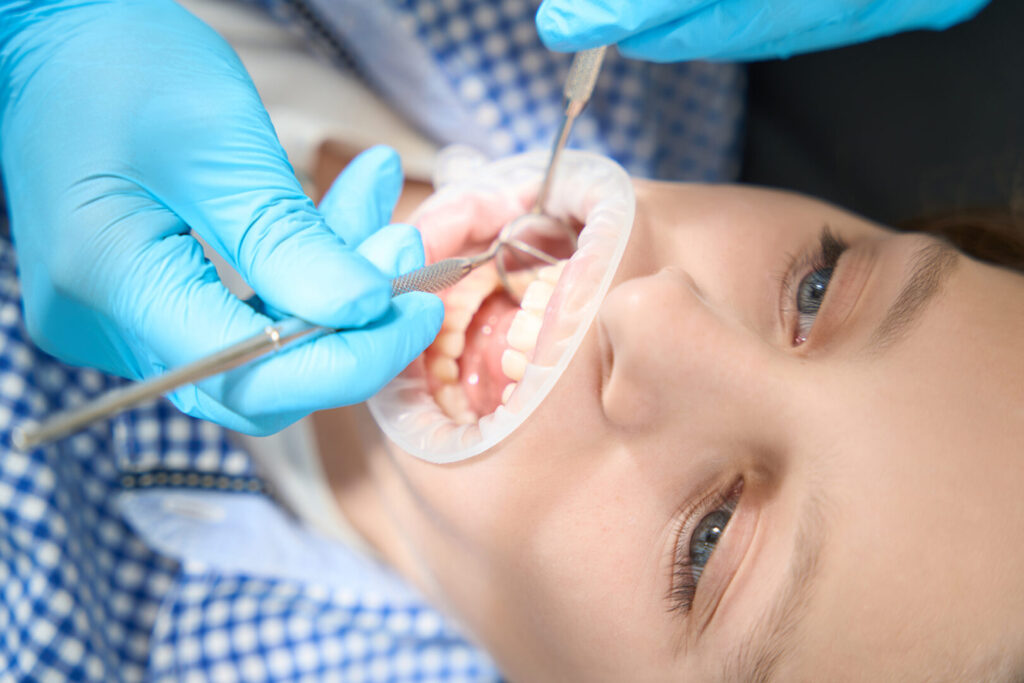
Common Symptoms of Teeth Grinding
The symptoms of teeth grinding are varied and can affect daily life. One of the most obvious signs is the physical damage to the teeth. Over time, this can include flattened, fractured, chipped, or loose teeth. This is especially worrisome because by wearing down the enamel, bruxism exposes the inner layers of the teeth, leading to sensitivity or pain.
Apart from dental damage, bruxism can cause muscle tension and pain in the jaw, neck or face. This muscle tension can manifest as tiredness, tightness, or even jaw lock that prevents normal movement. For many, this teeth-grinding pain can be severe enough to affect daily activities and overall quality of life.
Headaches are another common symptom of teeth grinding. These headaches start from the temples and can become chronic due to the constant strain on the facial muscles.
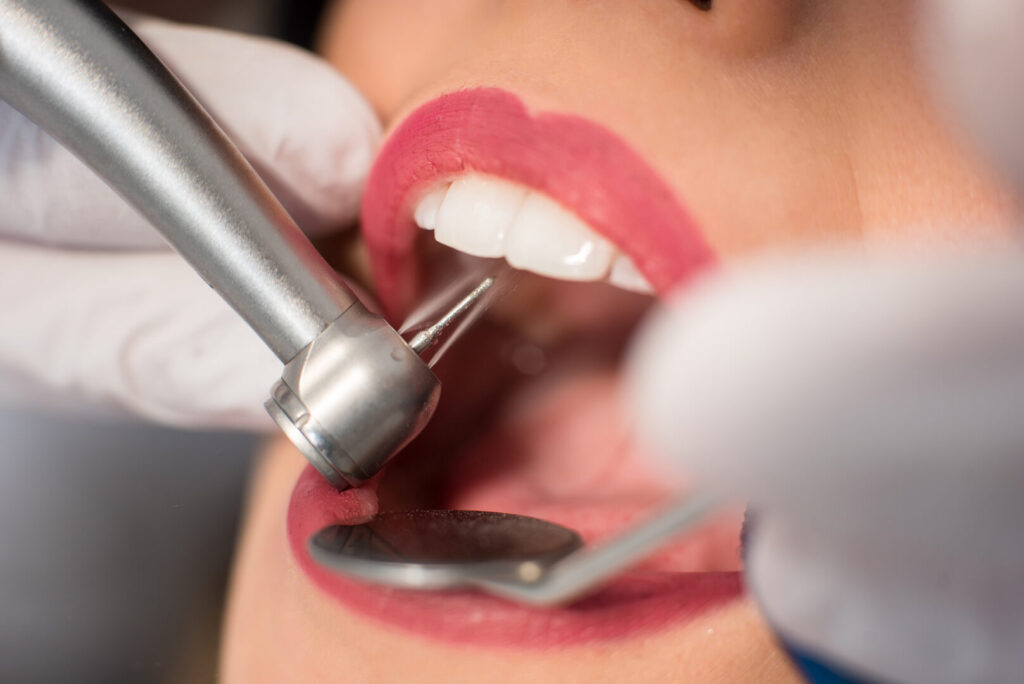
Causes and Risk Factors of Bruxism
Knowing what causes teeth grinding and the associated risk factors is crucial for effective management. Stress and anxiety are major contributors to awake bruxism. People with high-stress levels or anxious traits are more likely to grind their teeth, especially during intense concentration or emotional distress.
Sleep bruxism is often associated with sleep-related disorders like obstructive sleep apnea (OSA), which disrupts breathing during sleep and can trigger bruxism. Misaligned teeth and temporomandibular joint (TMJ) issues can also lead to teeth grinding, awake or asleep.
Secondary bruxism can result from other medical conditions or side effects from medication. That’s one of many reasons why a comprehensive treatment approach is needed. Treating underlying conditions like TMJ disorders or sleep apnea is essential to reduce the frequency and severity of grinding episodes.

Complications from Bruxism
Neglecting teeth grinding can cause several complications affecting dental health and overall well-being. Immediate effects include teeth grinding damage to the dental structure, including flattened, cracked, or loose teeth over time. Severe cases like irreversible tooth damage, hypersensitivity and intense toothache can develop if bruxism is left untreated. Bruxism can also cause TMJ disorders, resulting in pain, clicking sounds, and jaw movement difficulties.
Severe cases of bruxism may require restorative procedures to repair structural damage to the teeth. Ignoring these complications can lead to chronic pain and long-term dental problems; hence, timely intervention and management are important.
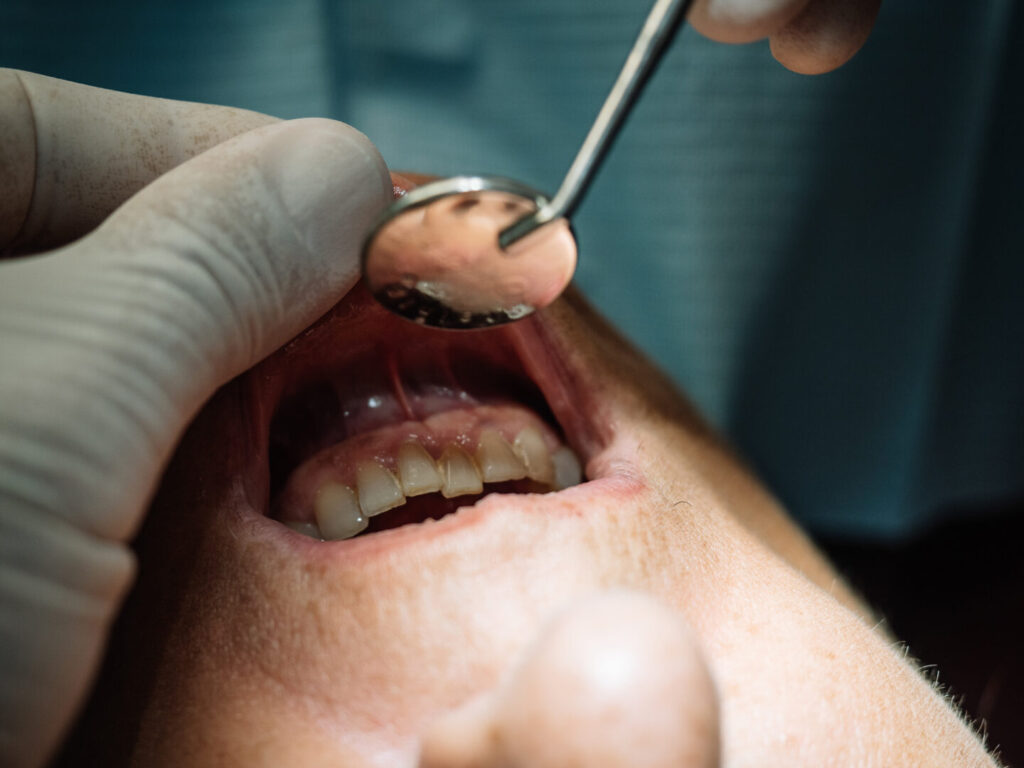
Diagnosis and Treatment Options for Teeth Grinding
Diagnosis of teeth grinding usually starts with a dental checkup, during which dentists look for grinding signs like wear patterns on the teeth. X-rays may be taken to assess the damage to the teeth and jaw. Sometimes, a sleep study is recommended to detect related sleep disorders that could cause bruxism, like sleep apnea.
Various treatment options are available to manage teeth grinding. Custom-fit mouthguards or occlusal splints are often recommended to protect the teeth from grinding, especially during sleep. These devices prevent further damage, reduce morning headaches, and improve sleep quality. Severe cases may require direct restorations, crowns or other dental corrections.
Apart from dental interventions, physiotherapy and muscle relaxants may be prescribed to relieve muscle tension and pain associated with bruxism. Botox injections can also help relax jaw muscles and reduce grinding intensity in severe cases.
Tackling underlying conditions like TMJ disorders is key to managing teeth grinding effectively. A comprehensive approach involving both dental and medical interventions can minimise the impact of bruxism on dental health and overall quality of life.
If you are unsure, consulting a dentist is important to discuss these treatments’ risks and benefits. They can consider both the severity of your bruxism and overall health to determine what dental solution makes the most sense.
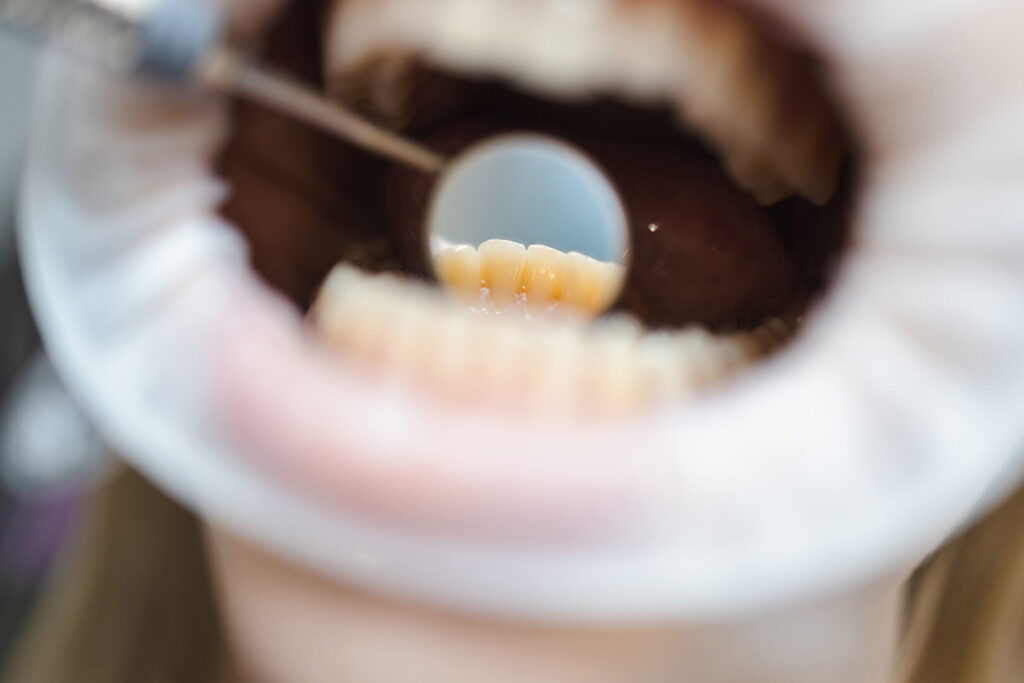
Home Remedies and Lifestyle Changes For Treating Bruxism
Managing bruxism at home is not impossible, but it necessitates lifestyle changes and remedies to reduce stress and improve sleep habits. Techniques like relaxation exercises and mindfulness practices can significantly reduce the frequency and severity of teeth grinding.
Individuals can proactively manage teeth grinding by adopting these home remedies and lifestyle changes:
- Good sleep hygiene, including a regular sleep schedule and a calming bedtime routine, helps to mitigate bruxism.
- Staying hydrated helps prevent teeth grinding, as a dry mouth can worsen the condition.
- Limiting hard foods can reduce jaw strain and the likelihood of grinding.
- Jaw relaxation exercises or biofeedback therapies can also help manage bruxism symptoms.
These measures complement professional treatments, offering a holistic approach to bruxism management.
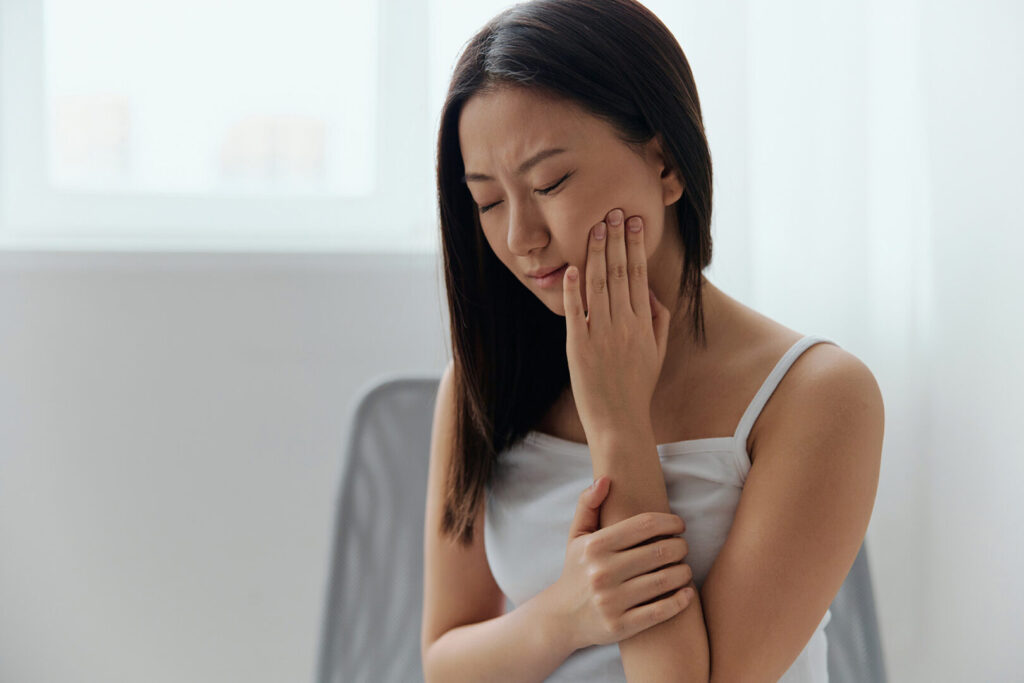
How To Prevent Teeth Grinding
Prevention is key to reducing the risk of teeth grinding. Lifestyle choices like not drinking too much alcohol and not smoking can lower the risk of grinding. Engaging in relaxing activities and avoiding stimulating ones like video games or action movies before bedtime can also help. Avoiding evening stimulants like caffeine can also reduce jaw muscle tension.
Regular dental visits are vital as dentists can detect early signs of bruxism and advise on preventive measures. Good oral hygiene and a healthy lifestyle can also prevent teeth grinding.
By adopting these preventive measures, you can proactively take care of your dental health and reduce the risk of bruxism. Prevention is better than cure, and these measures can stop grinding before they start.
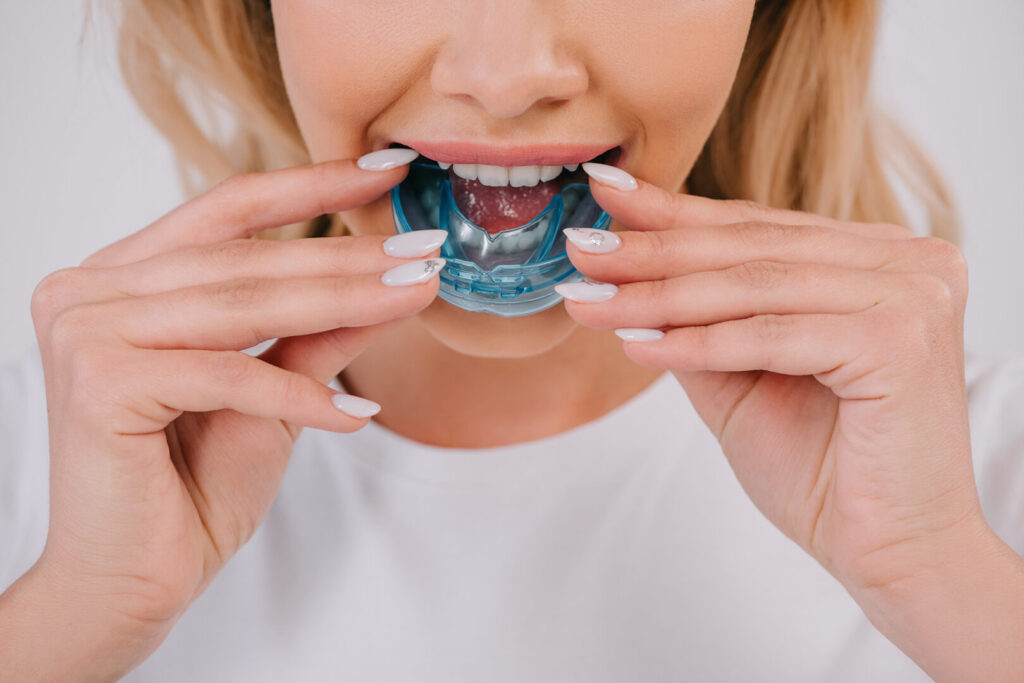
Stress and Teeth Grinding
Managing stress helps to reduce bruxism. Relaxation techniques like deep breathing exercises and mindfulness can significantly help reduce grinding.
Dietary considerations like consuming magnesium-rich foods support muscle function and reduce grinding frequency. Stretching the jaw and applying heat can improve muscle flexibility and relieve soreness.
Addressing the psychological aspect of bruxism helps to reduce stress’s impact on teeth grinding. Combining stress management with physical interventions can give relief from bruxism.
When to Get Help for Bruxism
If you experience pain in your mouth, jaw or neck due to grinding, consult a doctor or dentist who can guide you. Sleep disturbances from teeth grinding, like waking up with a sore jaw or experiencing disrupted sleep, means you need professional help to stop grinding your teeth.
Consult our dentist at TEETH @ Tiong Bahru to book an appointment. Our team can give you the support and treatment to manage bruxism. Early intervention is key to preventing complications and optimal dental health.
Frequently Asked Questions
What is teeth grinding?
Teeth grinding or bruxism is the involuntary clenching and grinding of teeth, often during sleep and linked to stress or concentration. Treat this condition with bite splints and stress management to prevent dental damage.
Is teeth grinding a sign of something?
Teeth grinding or bruxism is often a sign of stress, anxiety or sleep disorders. Certain medications can also cause it.
How do I stop grinding my teeth?
You can reduce stress through meditation, exercise and good sleep habits. A mouthguard should be used, and regular dental visits should be scheduled to ensure you have professional help.
What are the symptoms of teeth grinding?
Symptoms of teeth grinding are tooth damage, jaw pain, headaches and muscle tension. Address these issues early to prevent further complications.
What causes teeth grinding?
Teeth grinding is caused by stress, anxiety, sleep disorders like sleep apnea and conditions like TMJ (temporomandibular joint). Address these underlying factors to manage the condition.


